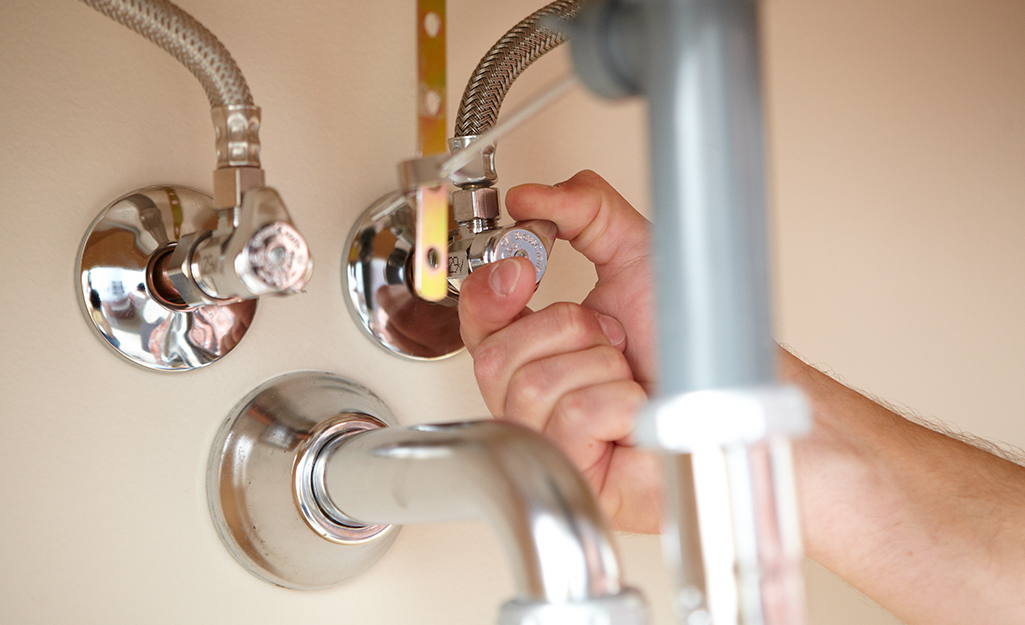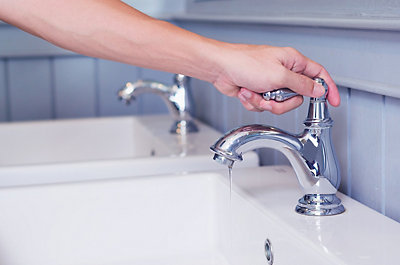My Motives Behind Resolving a Malfunctioning Faucet
My Motives Behind Resolving a Malfunctioning Faucet
Blog Article
The content below relating to Why It's Important to Fix Leaky Faucets is quite entertaining. Read it for your own benefit and figure out what you think about it.

Trickling faucets could look like a small hassle, but their effect surpasses simply the annoyance of the sound. From drainage to incurring unnecessary financial costs and health dangers, neglecting a trickling faucet can result in various repercussions. In this post, we'll delve into why it's vital to resolve this common home concern promptly and successfully.
Wastage of Water
Ecological Impact
Leaking taps add substantially to water waste. According to the Environmental Protection Agency (EPA), a solitary faucet dripping at one drip per secondly can waste greater than 3,000 gallons of water per year. This not just strains water sources yet likewise affects ecosystems and wild animals depending on them.
Financial Prices
Raised Water Bills
Beyond the ecological influence, leaking faucets can blow up water expenses significantly. The built up wastage with time equates into greater energy expenditures, which might have been stayed clear of with prompt repair work.
Possible Property Damage
In addition, prolonged trickling can cause damage to fixtures and surfaces surrounding the tap. Water accumulation can trigger staining, corrosion, and also architectural issues if left ignored, causing added repair work expenses.
Wellness Problems
Mold and Mildew Development
The constant presence of moisture from a dripping faucet develops an ideal setting for mold and mildew and mold development. These fungi not only compromise indoor air quality but likewise posture health risks, especially for people with breathing conditions or allergic reactions.
Waterborne Illness
Stationary water in dripping taps can become a breeding place for bacteria and other virus, boosting the threat of waterborne conditions. Pollutants such as Legionella germs flourish in stagnant water, possibly causing serious health problems when ingested or inhaled.
Do it yourself vs. Professional Repair service
Advantages and disadvantages of Do It Yourself Fixing
While some might attempt to fix a leaking faucet themselves, DIY repair services include their own collection of obstacles. Without correct knowledge and tools, DIY efforts can aggravate the concern or lead to insufficient repair work, lengthening the issue.
Advantages of Working With a Professional Plumber
Hiring a professional plumber guarantees that the underlying cause of the dripping tap is resolved properly. Plumbing professionals have the know-how and equipment to detect and repair tap problems successfully, saving time and minimizing the danger of further damages.
Step-by-Step Guide to Taking Care Of a Dripping Faucet
Tools Called for
Before trying to fix a trickling tap, gather the needed devices, including an adjustable wrench, screwdrivers, substitute parts (such as washers or cartridges), and plumber's tape.
Usual Tap Issues and Their Solutions
Identify the kind of faucet and the particular problem causing the drip. Common issues include damaged washing machines, corroded valve seats, or defective O-rings. Describe supplier guidelines or on-line tutorials for detailed advice on repairs.
Preventive Measures
Normal Upkeep Tips
To avoid leaking faucets, execute regular upkeep such as cleaning aerators, examining for leakages, and changing worn-out components immediately. Furthermore, consider mounting water-saving tools or upgrading to extra reliable fixtures.
Importance of Prompt Services
Resolving leaking faucets as quickly as they're observed prevents more water waste and prospective damage, eventually conserving both water and money in the long run.
Influence On Residential Or Commercial Property Value
Perception of Well-Maintained Home
Maintaining a residential or commercial property in good condition, consisting of resolving upkeep issues like leaking taps, improves its regarded value and desirability among potential buyers or renters.
Influence on Resale Value
Qualities with well-kept plumbing components, including faucets, command higher resale values in the realty market. Addressing leaking faucets can add to a favorable impression during building inspections and negotiations.
Environmental Responsibility
Individual Payment to Preservation
Taking responsibility for repairing leaking faucets straightens with more comprehensive efforts toward water preservation and ecological sustainability. Every individual's actions jointly make a considerable impact on preserving valuable sources.
Sustainable Living Practices
By focusing on timely repairs and taking on water-saving practices, people contribute to lasting living practices that profit both present and future generations.
Verdict
Dealing with a dripping faucet exceeds plain convenience; it's a vital action towards preserving water, decreasing financial costs, and protecting wellness and home. Whether with DIY fixings or expert help, doing something about it to take care of dripping taps is a small yet impactful means to promote liable stewardship of resources and add to a much healthier, a lot more lasting future.
How to Fix a Leaky Faucet: Step-by-Step Repair Guide
A leaky faucet may seem like a simple annoyance, but if it's not fixed promptly, that leak could cost hundreds to potentially thousands. From water damage to mold, mildew, and high water bills, even a tiny leak can be catastrophic if left unattended. Damage like this can even affect the overall value of your home, so it's important to take the right approach for leaky faucet repair. You may need the help of a plumber in some cases, but we've got a few tips you can try on how to fix a leaky faucet before calling the pros.
Four Faucet Types
When you're learning how to fix a leaky faucet, the first step is knowing what kind of faucet you're working with! There are four common types.
Cartridge Faucets
Cartridge faucets come in one- or two-handled varieties. In one-handled cartridge faucets, hot and cold water combines in a single cartridge. In the two-handled versions, hot and cold water are controlled separately and mixed in the faucet.
Ball Faucets
Ball faucets have a single lever you push up and down to adjust the pressure and rotate to change the temperature. A slotted metal ball controls the amount of water allowed into the spout.
Compression Washer Faucets
They're the oldest type of faucet, but they're still used in many homes — especially older ones. Compression faucets have two separate handles that, when turned, raise or lower the washer that seals a water valve. This valve stops water from flowing through the faucet when it is turned off.
Disc Faucets
Disc faucets rarely need to be repaired due to their maintenance-free design. The water flow is controlled by two discs — the upper one raises and lowers against a fixed lower disc, creating a watertight seal. If your disc faucet starts leaking, you may need to replace the seals or clean residue buildup from the inlets.
Fixing a Leaky Faucet
Step 1: Turn Off the Water
Whether you're learning how to fix a leaky bathtub faucet or how to fix a leaky kitchen faucet, always turn off the water supply to your working area when you're fixing a leak. The last thing you want is a flood added to your list of things to fix.
Look for the shutoff valves below your sink or around the tub and turn them clockwise to stop the water flow. If your faucet doesn't have shutoff valves, you may need to turn off the water for the whole house. Check to make sure it's off by turning the faucet on. If nothing comes out, you're ready to start the repair.
Step 2: Take Apart the Faucet
How you disassemble your faucet depends on the type of fixture you have. You can use a flathead screwdriver to remove the caps on top of the handle or handles for cartridge and compression faucets. Inside, you should see handle screws. Unscrew these with a screwdriver to remove the handle.
Disc- and ball-style faucets will typically have an inlet screw near the handle, and removing that will reveal the interior of the faucet.
Detach the Valve Stem
For cartridge- and compression-style faucets, you'll see the inner valve stem or cartridge once you remove the faucet handles. If you have a compression faucet, unscrew the brass valve stem. If you have a cartridge faucet, pull out the cartridge. If your cartridge has been in place for a while, it may require some tools or extra force to remove it due to mineral deposits.
Examine and Replace Parts
Once you've removed the parts, check them out to confirm what needs to be replaced. You may see corroded rubber washers, O-rings, stems, or cartridges. On a ball-style faucet, check the seats and springs for damage.
If you need to repair a leaky disc faucet, check the inlet and seals on the lower disc.
Once you determine what parts must be replaced, visit your local hardware store. Bring the damaged parts with you to ensure you can purchase the correct components to replace them.
Clean Valves and Faucet Cavity
If you've removed a stem or cartridge, you may notice mineral buildup in the faucet's threads. Use white vinegar to clean the valve seat by soaking it for a few minutes, then scrub it away with a soft toothbrush and rinse with warm water. You can also clean the interior of the faucet in the same way.
Reassemble the Faucet
Once your faucet is cleaned and the required parts have been replaced, it's time to reassemble it. Put the pieces back together and slowly turn the water supply back on. Doing this slowly is crucial because too much initial water pressure can damage the new hardware you've just installed.
https://homewarranty.firstam.com/blog/how-to-fix-leaky-faucet

We hope you enjoyed reading our excerpt on . Thanks for taking the time to read our piece of content. Sharing is good. Who knows, you might be doing someone a favor. Thanks for your time spent reading it.
Report this page